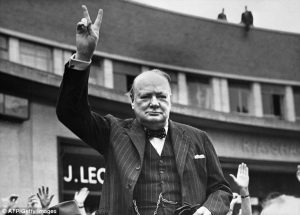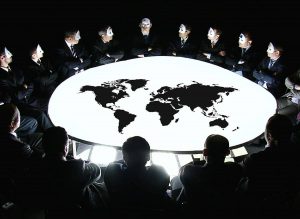Elite’s Power, and Interests in Britain
Although the privileged classes in Britain have constantly compromised with each other, and a cultural, economic and political unity has evolved among them, differences in the market situation between the landed class, the City institutions and manufacturers continues to exist. This diversity has to do with the industrial revolution. In the eighteenth century, industry was regarded as a relatively unimportant activity. Manufacturing was the preserve of merchants who controlled the production process through their control over the buying and selling of goods and through their ability to offer credit. In the 1770’s however, the growth of industrial production accelerated and a number of technical innovations were taken up and led to the revolutionary technologies of cotton and iron production. “The merchants who had accumulated both wealth and experience in industrial production were able to take up the opportunities offered by the growth of trade and so could invest surplus capital to meet the demand which had been stimulated by the growth in the population.”27 However, the significance of this so called ‘industrial revolution’ was not at first realised by those involved; it was an “unsought, unplanned, unprecedented phenomenon.”28 But, the technological dimension of the process brought an improvement in the getting and working of raw materials and the substitution of mechanical devices for human skills and power.
The resulting shift from agriculture to industry involved the financiers of the City. The reason was that industry and machinery speeded production. Exchange of mass production i.e. buying and selling commodities as a result, required the insurance and financial activities of the City which deals with large amounts of money. Manufacturing industry on the one hand and financial activities of the City on the other hand became the main areas of economic interest of the elite in Britain. The landed class however were involved in both operations. The situation has remained until the present.
As the technological developments brought a speedy method of production, which was beyond the capacity of the home market to buy all the produced goods or fully supply the need for raw materials to make the goods, Britain was forced to seek markets and raw materials overseas. To do this the elite had to implement a strategy which would ensure that markets would be developed and the flow of raw materials would be assured. Therefore, Britain had to resort to the policy of direct control over those far away land which were considered as the potential markets and places which possessed the raw materials that were important to Britain’s manufacturing industry.
The strategists were members of the elite which benefited from these economic and subsequently political developments. They were people who had controlling interests in manufacturing industry and the financial operations of the City of London; they included the landed class, and together have come to be known as “the establishment.”29 This direct control of foreign lands which later led them to become acquisitions of Britain brought extra gains for the establishment. New professional opportunities arose: positions in those organisations which were created in order to look after the possessions abroad i.e. Colonial Office, and the department responsible for defence; in addition, all those state departments which already were in existence grew larger to enable themselves to cope with the extra activities created as a result of this economic and political growth.
Those members of the establishment who had leading positions in the state departments were the political elite. As well as jobs which were direct gains from the territorial possessions, or the empire, which Britain acquires, the British political elite’s main concern was the economic well being and privileges of the whole of the establishment (or the imperial based class).
This is due to the fact that the establishment, as we have seen in here, comprises of those with a similar background and often this social cohesion develops into kinship. Therefore it was the economic and social interest of the establishment that the political elite had to protect.



